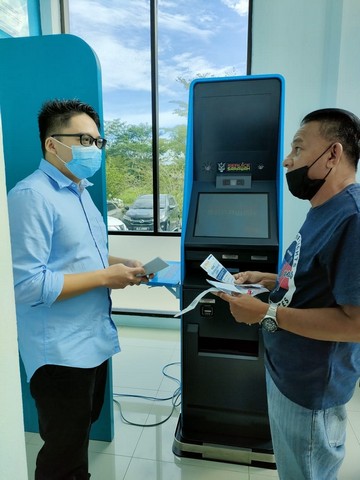The term “feedback” is used to describe the helpful information or criticism about prior action or behaviour from an individual, communicated to another individual (or a group) who can use that information to adjust and improve current and future actions and behaviours.
Feedback occurs when an environment reacts to an action or behaviour. For example, ‘customer feedback’ is the buyers’ reaction to a company’s products, services, or policies; and ’employee performance feedback’ is the employees’ reaction to feedback from their manager.
Using feedback, public service leaders could set goals for process or service improvements and periodically report on progress. Agencies can improve their operations if they collect feedback, acknowledge and review it, and respond in a timely fashion.
Technology has created a host of new opportunities for collecting citizen feedback. New technologies can lead to more data and data collection is necessary to obtain an overall picture of service quality.
Digital technologies give government agencies the opportunity to share processes, information and data and to group certain sets of services that can make life easier for consumers – like what e-commerce sites can do today.
These new data resources can be very insightful because they contain a full range of citizen opinions about public services. Public organizations require insights into service‐user preferences in situations where citizens are ‘forced customers’ and where public organizations must fulfil objectives unrelated to service demand or profitability.
Citizen satisfaction is known to correlate with a number of factors, including socioeconomic status, education and employment history, demographic background and available knowledge. The physical participation of citizens in public decision‐making is one way for the authorities to engage with and understand service users’ perceptions of public services.
Taking public opinion seriously is a prerequisite to solve problems that relate to service output performance in public service. To include the voice of service users in public service decision‐making requires a robust understanding of whether, how and why users are satisfied. This approach can facilitate institutional change and increase public satisfaction with public services.
One data resource that captures and includes the voice of service users in public decision‐making is written reviews of public services. Online written reviews can be posted anonymously, addressing privacy issues. Despite complex sample prejudices, they can provide decision‐makers in public institutions with a valid resource.
The Sarawak Civil Service (SCS) places great emphasis on getting feedback from the public.
Several initiatives have been implemented such as creating a customer charter which is a commitment to the public on the services provided/offered where the public is requested and encouraged to submit comments, suggestions and feedback on the services offered.
Apart from that, government agencies are asked to provide customer service space/counters that not only help customers on how to get the relevant agency services but also as a medium to submit feedback about the agency. Departments and agencies within the SCS also actively hold customer meeting days such as the Sejiwa Senada events which is one of the easiest and most reliable means for the general public to interact with service operators.
The establishment of special agencies to handle complaints and feedback such as the Bureau of Public Complaints and Talikhidmat is also a major initiative of the Sarawak public service to provide the best service and obtain feedback from the public for the improvement of government services.
With the advancement of advanced digital technology and openness in government administration, the collection of information and data from the feedback obtained will facilitate government development planning which ultimately provides the greatest benefit to society.






